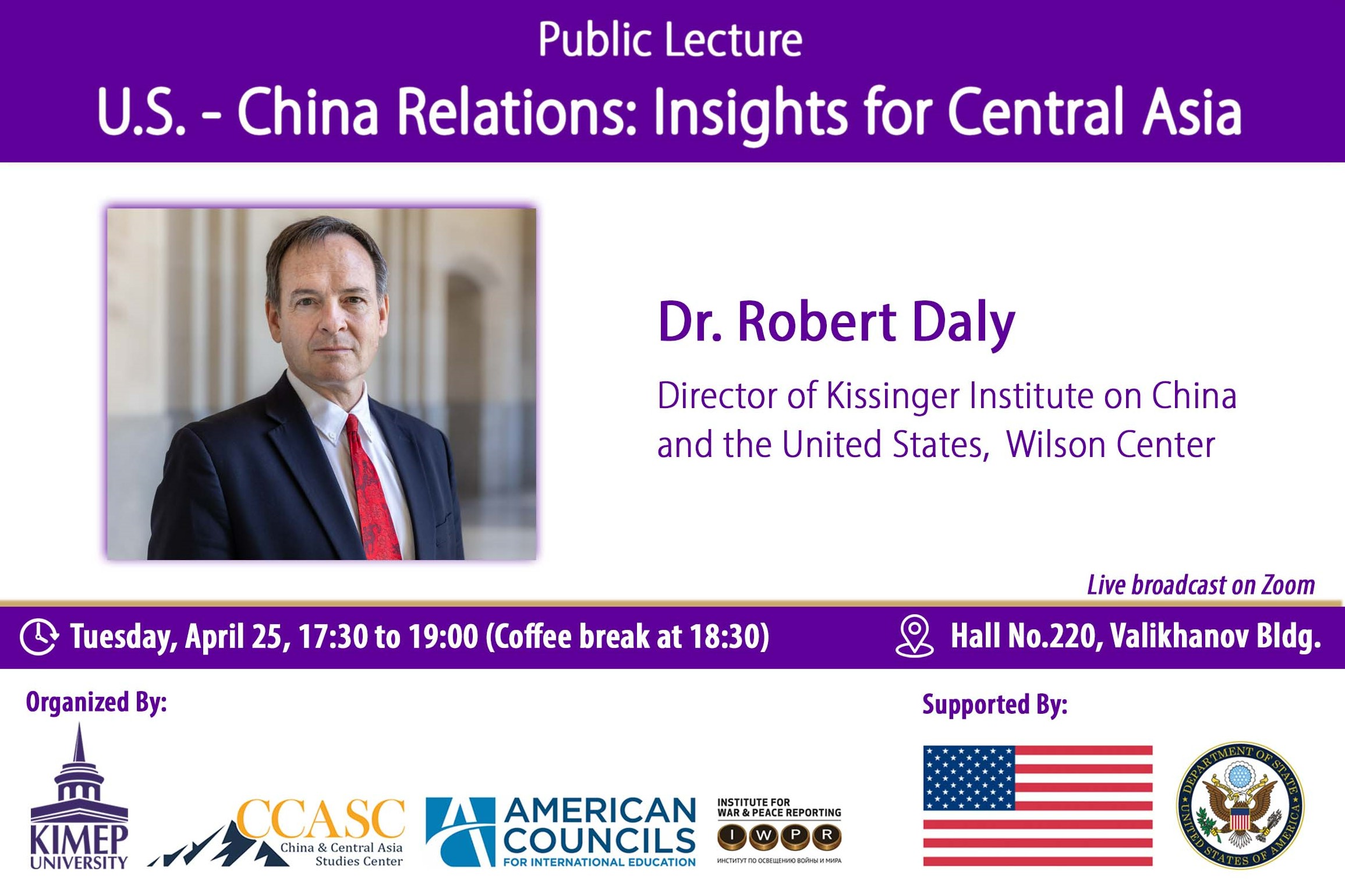
This past week, CCASC and KIMEP University hosted a distinguished guest, Dr. Robert Daly, Director of Wilson Center's Kissinger Institute, for a public lecture on the current state of US - China relations and their implications for the Central Asian countries.
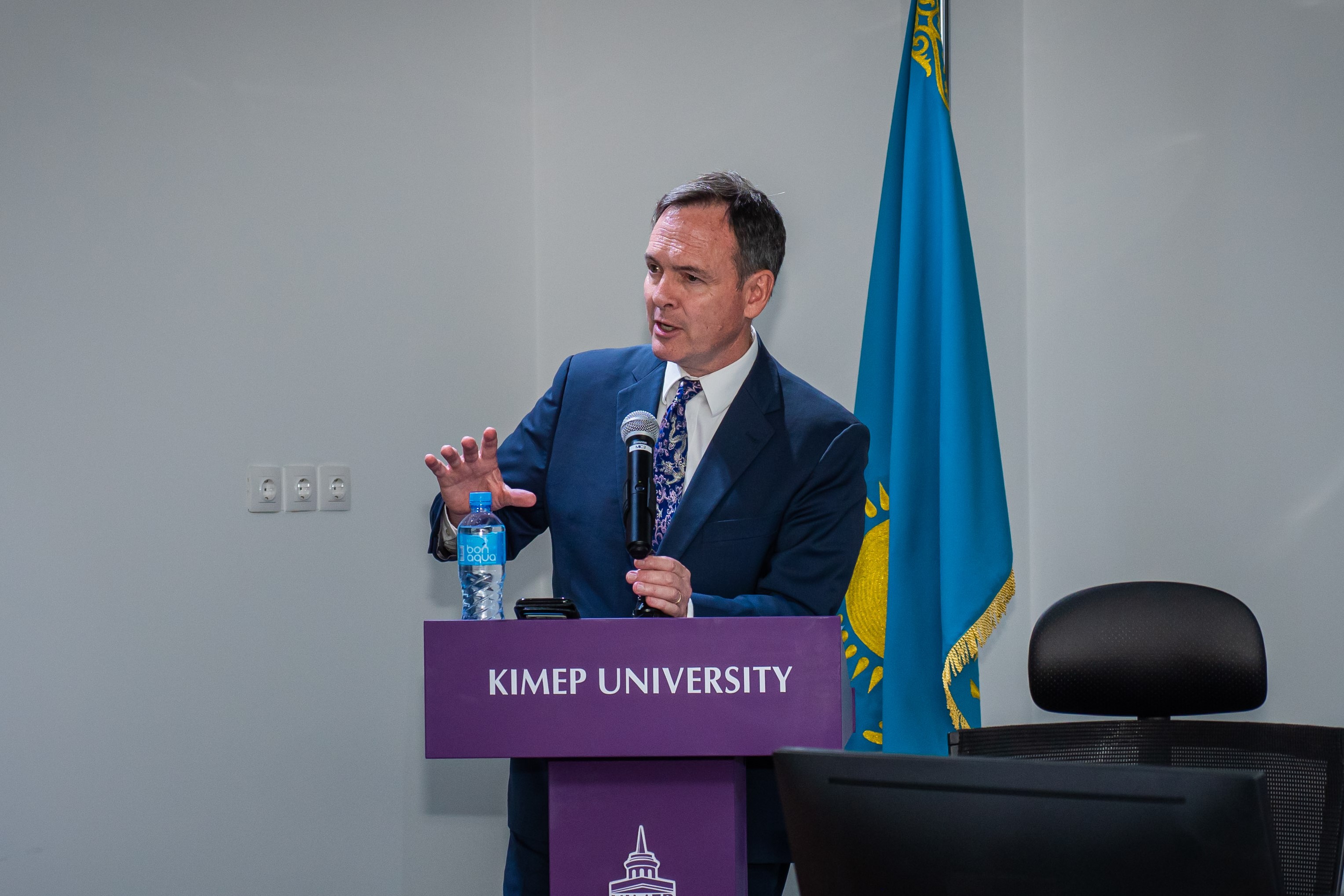
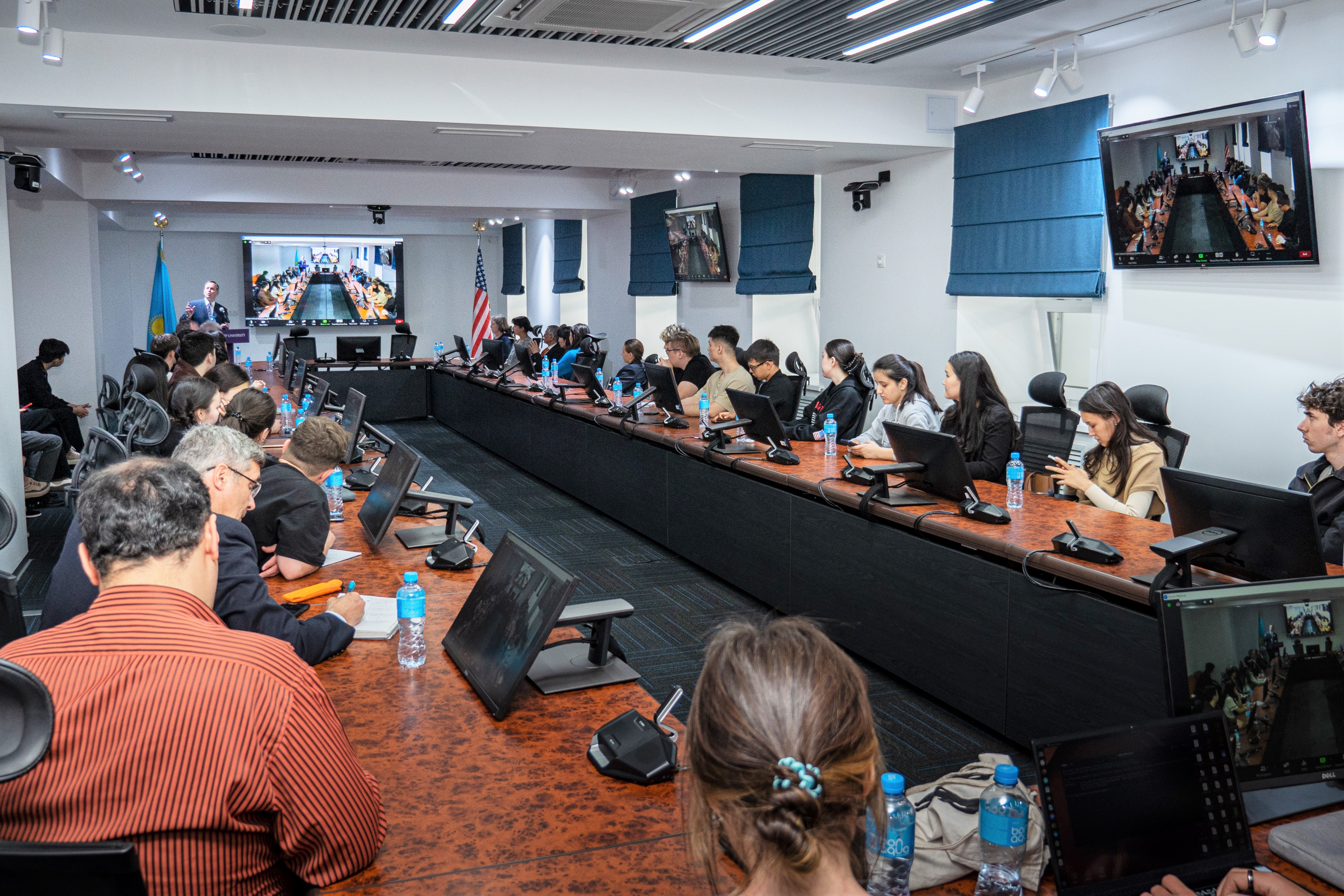
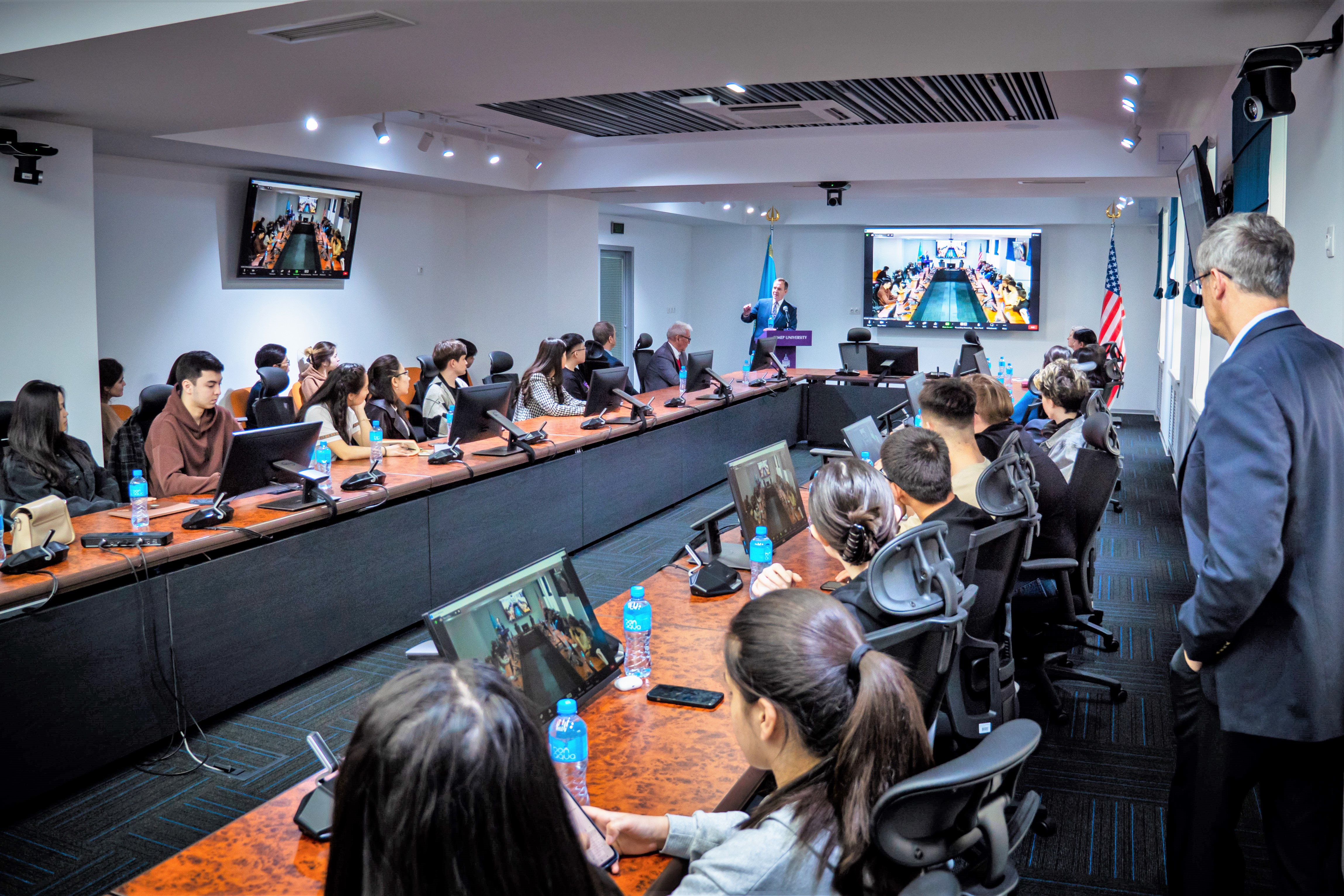
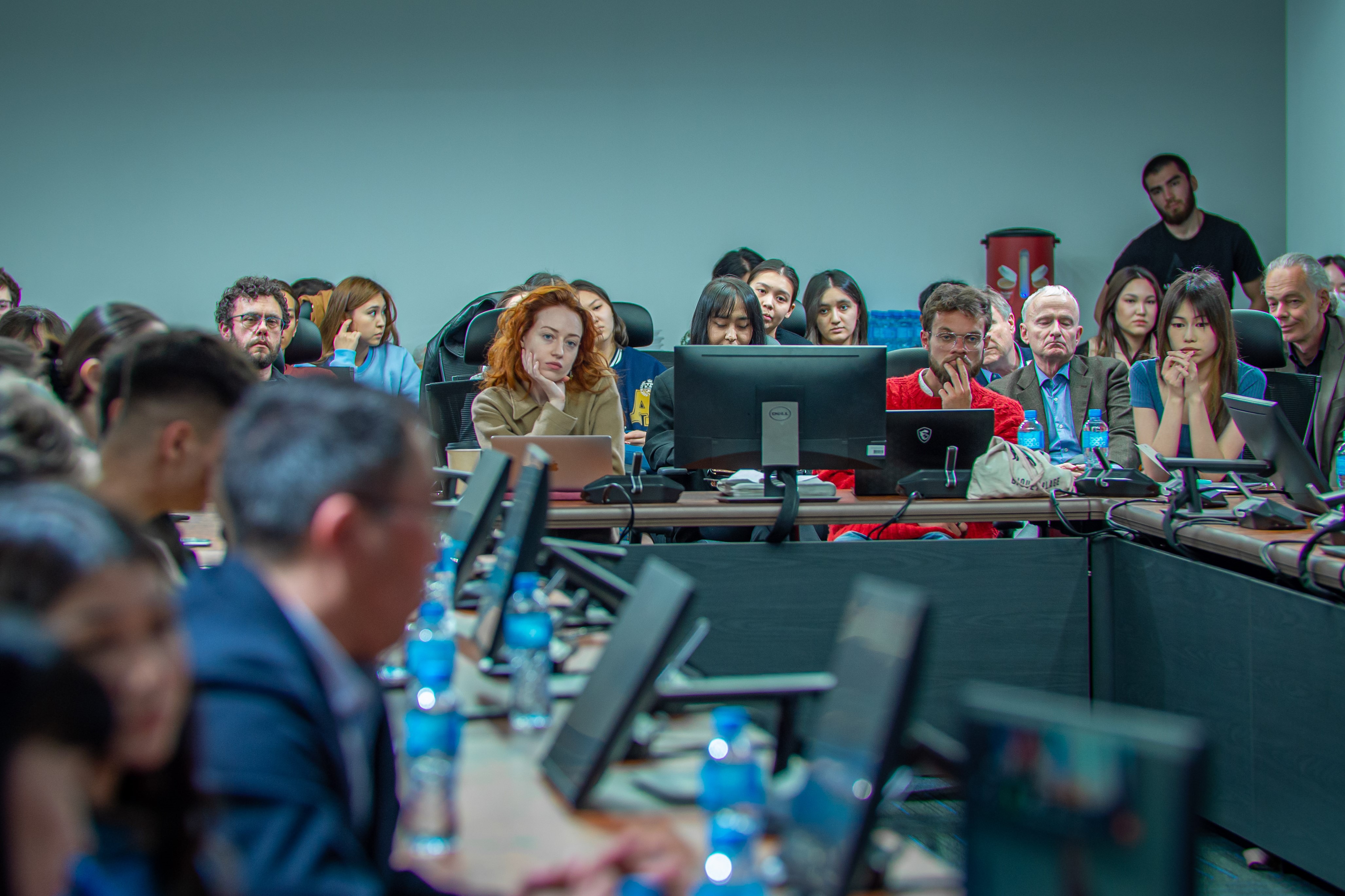
On April 25, CCASC and KIMEP University hosted Dr. Robert Daly, director of Wilson Center's Kissinger Institute on China and the United States, for a lecture on the current state of US-China relations and its implications for Central Asia.
In this lecture, Robert Daly argued that, regrettably, US-China relations should now be understood as a new kind of Cold War that will affect the interests of a growing number of nations in the coming decades. After describing factors that led to this state of mutual hostility, he offered an analysis of the differences between this cold war and the first, and outlined strategies that the United States, China, and third countries can adopt in order to limit the harmful effects of long-term rivalry and reduce tensions between the superpowers. The increased agency of middle powers, developing nations, and regions like Central Asia, he argued, will play a key role in maintaining peace and increasing prosperity despite a growing great power competition.
You can watch a video recording of the lecture on CCASC's YouTube channel:
In this lecture, Robert Daly argued that, regrettably, US-China relations should now be understood as a new kind of Cold War that will affect the interests of a growing number of nations in the coming decades. After describing factors that led to this state of mutual hostility, he offered an analysis of the differences between this cold war and the first, and outlined strategies that the United States, China, and third countries can adopt in order to limit the harmful effects of long-term rivalry and reduce tensions between the superpowers. The increased agency of middle powers, developing nations, and regions like Central Asia, he argued, will play a key role in maintaining peace and increasing prosperity despite a growing great power competition.
You can watch a video recording of the lecture on CCASC's YouTube channel:

